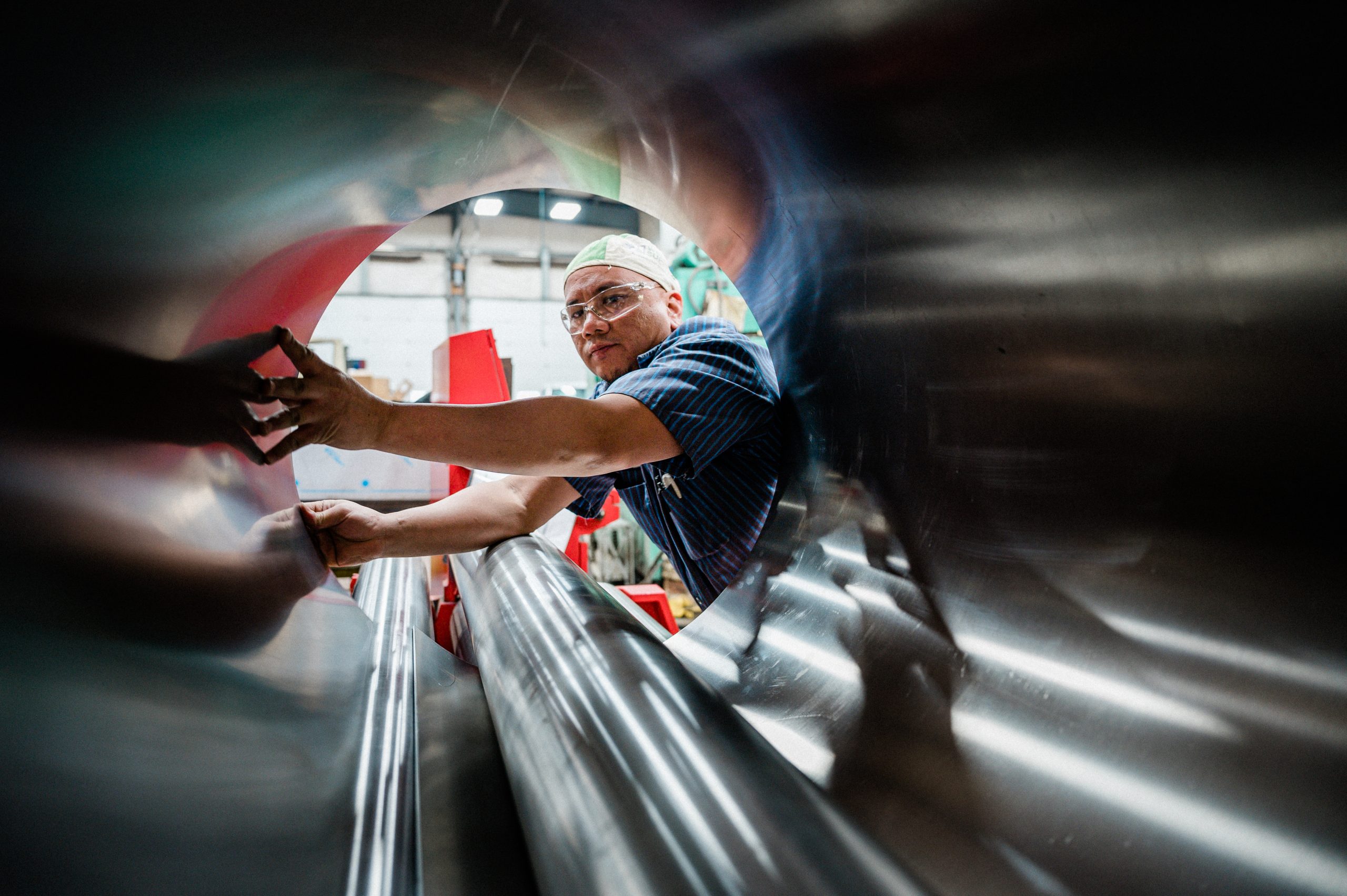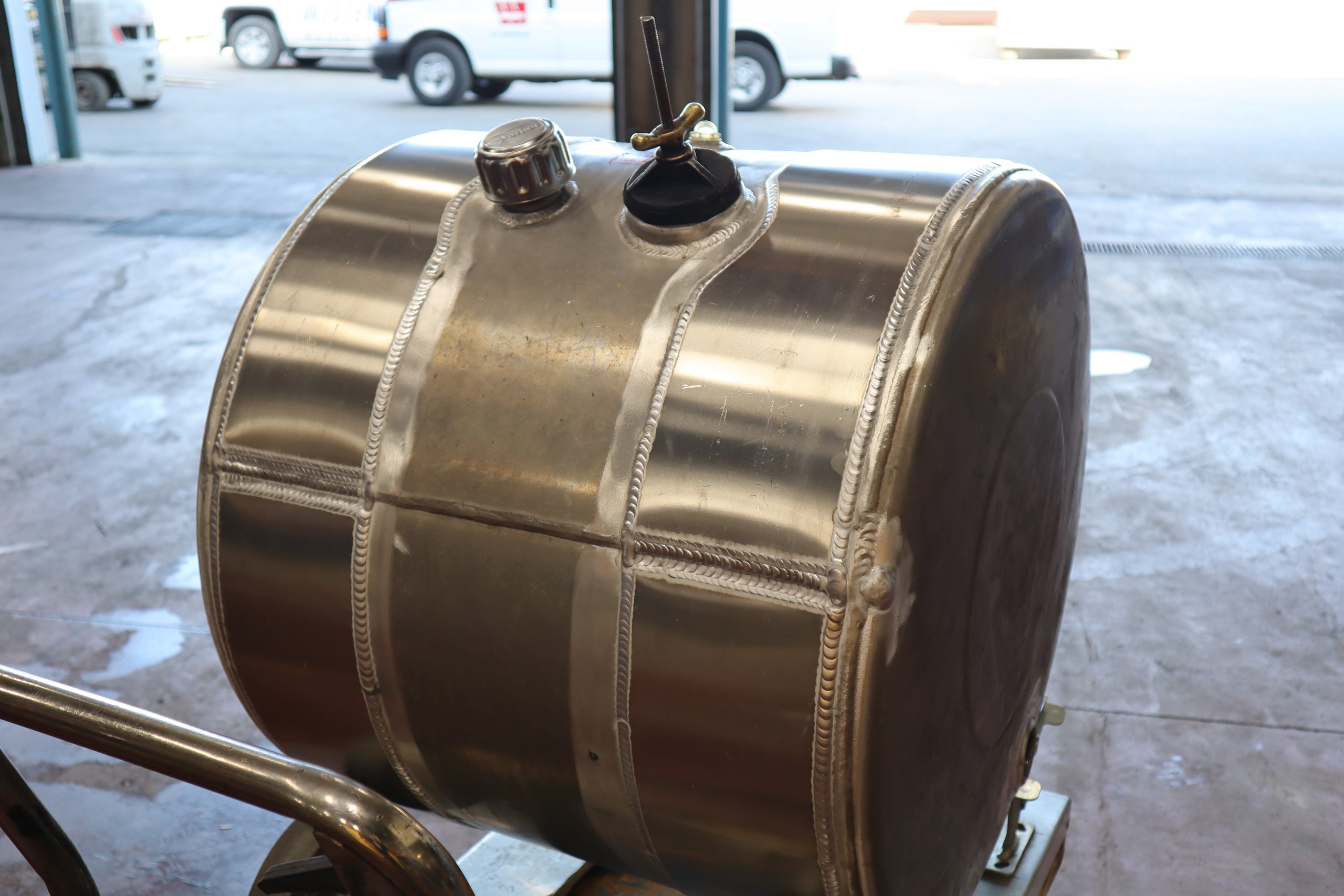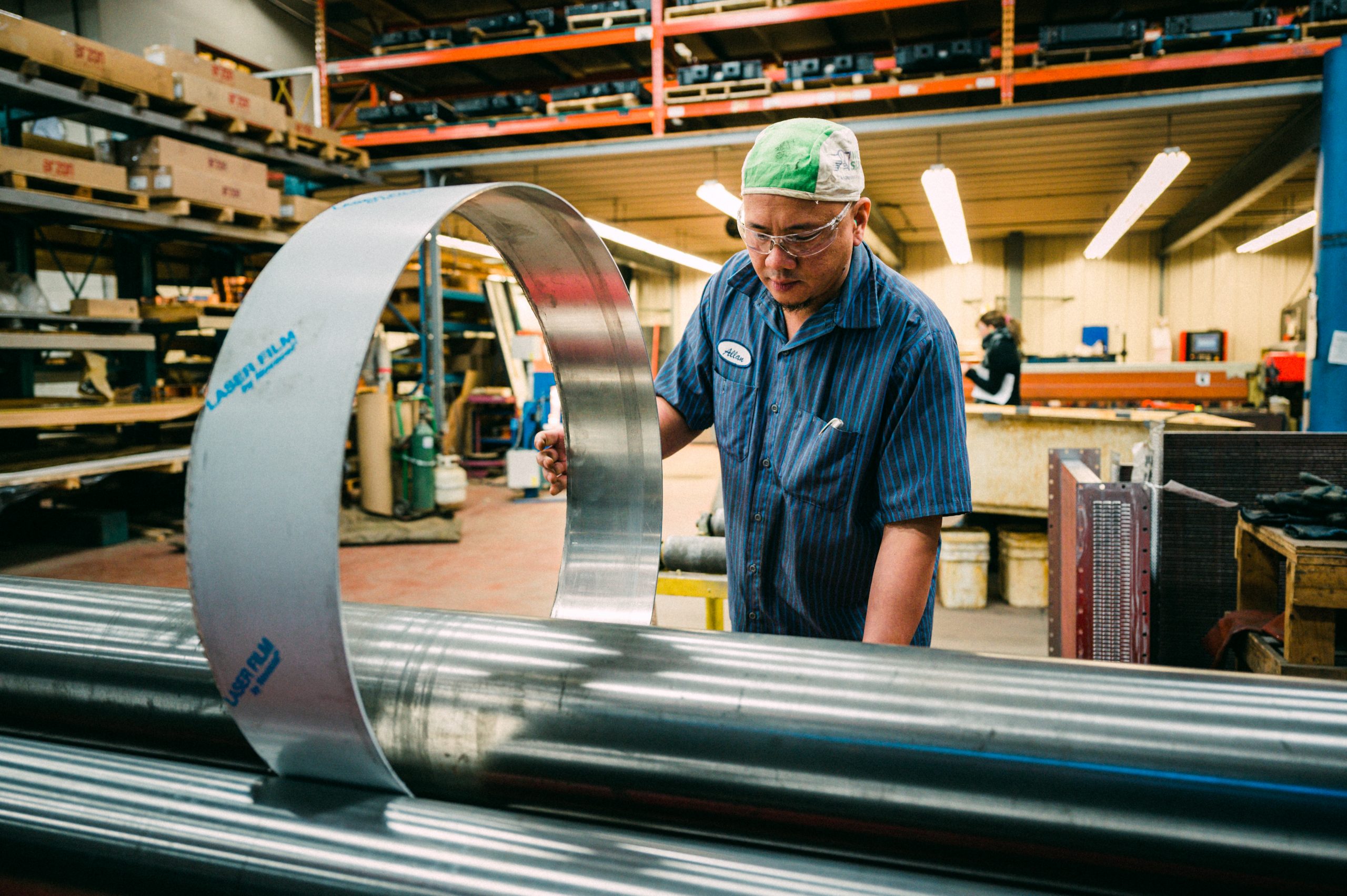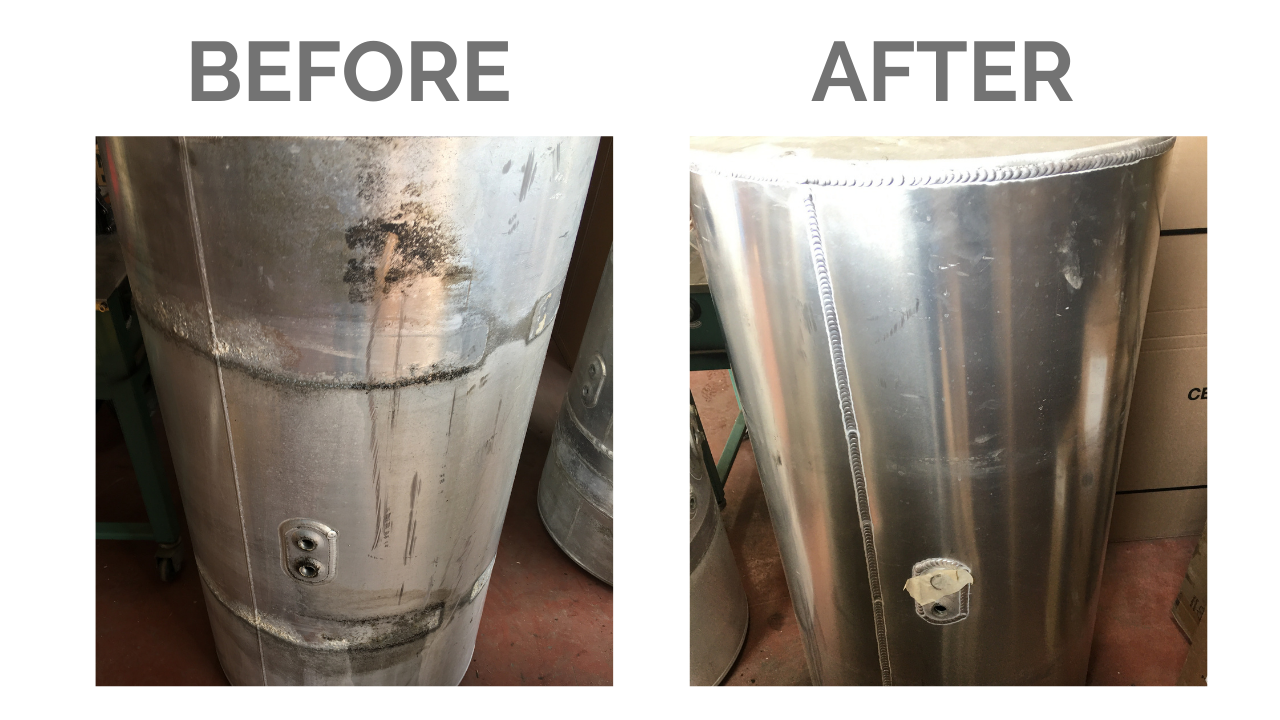The fuel tank is a key component to any diesel engine. It stores fuel for the engine to operate while also keeping out contaminants like water and debris that can cause engine failures. But with ongoing use, fuel tanks are prone to leaks and holes. Even leaks as small as a pin hole can cause much damage if not properly repaired, and in fact, can be very expensive if not caught quickly.
So, what’s the best way to repair your diesel fuel tank? It’s a question many customers ask us, and one that comes with several answers.
Fuel tanks come in different shapes and sizes depending on the machine’s fuel system design. We suggest customizing your repair based on;
- The material your fuel tank is made of.
- The required ongoing use of your fuel tank (every day, heavy-duty use vs. occasional use).
- How old your fuel tank is.
With all that in mind, we’ve asked our team of expert mechanics to share their advice on repairing leaks and holes in diesel fuel tanks.

3 Ways to Repair Leaks & Holes in a Diesel Fuel Tank
1. Weld and Patch Your Existing Fuel Tank
Repairing your existing fuel tank is the best solution for new OEM fuel tanks. A proper weld can last up to a few years and extend the life of your original fuel tank.
However, the process of welding a diesel fuel tank can be extremely dangerous if not done in a controlled environment. There is a possibility of fire from diesel fumes and risks to the welder themselves as often times welds must be done on the inside of the tank.
We recommend bringing in your fuel tank to our shop, so we can properly test and assess the situation. We have specialized welders on team who are trained in welding fuel tank seams and other hard to repair places.
We weld both aluminum and steel fuel tanks. Learn more here!
Here is our process for welding fuel tanks:
First, we perform a rigorous water testing process. This allows us to identify exactly where the leak is.
Next, we determine the correct material to use for the repair. We typically use a speciality gage of aluminum for welding fuel tanks that is 40% thicker than the OEM.
From there, we do another round of pressure testing to ensure there are no remaining leaks or holes. This is a key step in our process and is what sets us apart from traditional mechanic shops.

2. Rebarrel Your Fuel Tank
Rebarelling your fuel tank is the best option if you plan to use it for long-term, ongoing use.
So, what does it mean to rebarrel your diesel fuel tank? Rebarelling is where the end caps are cut off the old aluminum fuel tank and the old corroded middle part or the barrel is removed. This is typically required for older fuel tanks that have seen extreme use.
We use our in-house roller to roll a new aluminum barrel with .125” gauge aluminum. We then weld the old end caps back on. All fittings are transferred over to the new tank and it is fully pressure tested.
We also carry custom wet kits. A wet kit involves our technicians putting a divider into a fuel tank with the necessary fittings. This is typically done so one part of the tank can be used to hold oil (for hydraulics) and the second part can be used for diesel fuel.
Call us to learn more about our rebarelling process, wet kits and pricing!

3. Fully Replace Your Old Fuel Tank with a New, Aftermarket Tank
Replacing your fuel tank is the best option if your tank is beyond repair or has many leaks/holes that can not be fixed with aluminum welds.
We proudly manufacture custom aftermarket fuel tanks for a range of OEMs and industries.
We can manufacture custom fuel tanks from both aluminum and steel. These are typically slip tanks or oil tanks. There are no specific OEMs on these fuel tanks, meaning we can provide you an aftermarket fuel tank that will be the best fit for your machine.

|
Learn more about our full list of service here. You can also browse our full line of aftermarket inventory here.
Our Commitment to You:
- Efficient service for rush and emergency jobs
- Experts in heavy-duty industrial cooling
- 1-year warranty on all parts
- Customized repairs to fit your machine’s environment and needs
